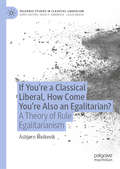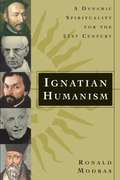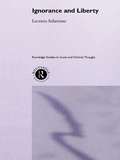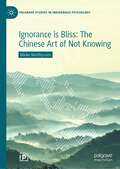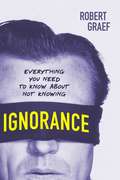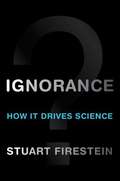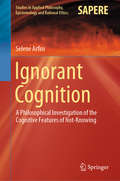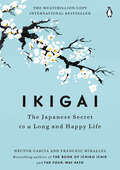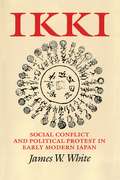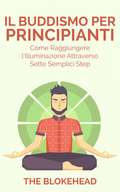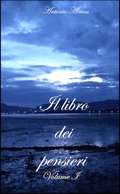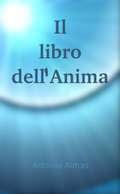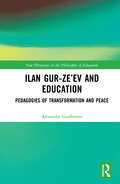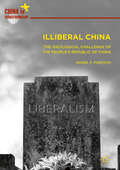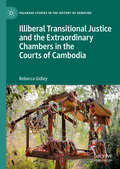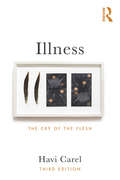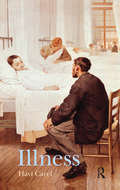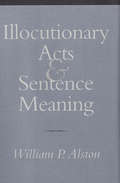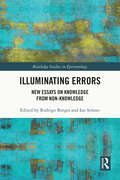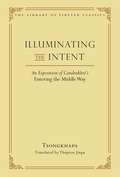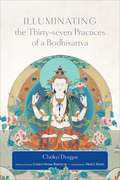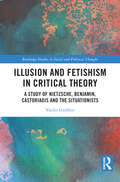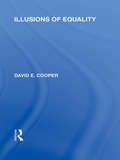- Table View
- List View
If You’re a Classical Liberal, How Come You’re Also an Egalitarian?: A Theory of Rule Egalitarianism (Palgrave Studies in Classical Liberalism)
by Åsbjørn MelkevikClassical liberalism has wrongly been regarded as an ideology that rejects the welfare state. In this book, Åsbjørn Melkevik corrects this common reading of the classical liberal tradition by introducing a theory of “rule egalitarianism”. Not only is classical liberalism compatible with social justice, but it can also help us understand why some egalitarian endeavours are an essential feature of a market society. If a necessary link exists between the classical liberal tradition and the moral and institutional dimensions of the rule of law, then this tradition is bound to uphold a substantial form of social justice. Coherence requires that classical liberals like Friedrich Hayek and Milton Friedman adopt an authentic egalitarian program. They should ameliorate poverty and limit inequality not merely out of prudence or collective self-interest, but for the natural justice of ongoing social cooperation as well as for the impartiality of market institutions.
Ignatian Humanism: A Dynamic Spirituality for the Twenty-First Century
by Ronald Modras<p>Ignatius Loyola, founder of the Jesuit order, is one of a mere handful of individuals who has permanently changed the way we understand God. In this vividly written and meticulously researched book, Ronald Modras shows how Ignatian spirituality retains extraordinary vigor and relevance nearly five centuries after Loyola’s death. At its heart, Ignatian spirituality is a humanism that defends human rights, prizes learning from other cultures, seeks common ground between science and religion, struggles for justice, and honors a God who is actively at work in creation. <p>The towering achievements of the Jesuits are made tangible by Modras’s vivid portraits of Ignatius and five of his successors: Matteo Ricci, the first Westerner at the court of the Chinese emperor; Friederich Spee, who defended women accused of witchcraft; Karl Rahner, the greatest Catholic theologian of the twentieth century; Pierre Teilhard de Chardin, the scientist-mystic; and Pedro Arrupe, the charismatic leader of the Jesuits in the years following Vatican II.</p>
Ignorance and Bliss: On Wanting Not to Know
by Mark LillWe want to know, we want not to know. We accept truth, we resist truth. Back and forth the mind shuttles, playing badminton with itself. But it doesn't feel like a game. It feels as if our lives are at stake. And they are. Aristotle claimed that "all human beings want to know." Our own experience proves that all human beings also want not to know. Today, centuries after the Enlightenment, mesmerized crowds still follow preposterous prophets, irrational rumors trigger fanatical acts, and magical thinking crowds out common sense and expertise. Why is this? Where does this will to ignorance come from, and how does it continue to shape our lives? In Ignorance and Bliss, the acclaimed essayist and historian of ideas Mark Lilla offers an absorbing psychological diagnosis of the human will not to know. With erudition and brio, Lilia ranges from the Book of Genesis and Plato's dialogues to Sufi parables and Sigmund Freud, revealing the paradoxes of hiding truth from ourselves. He also exposes the fantasies this impulse leads us to entertain--the illusion that the ecstasies of prophets, mystics, and holy fools offer access to esoteric truths; the illusion of children's lamblike innocence; and the nostalgic illusion of recapturing the glories of vanished and allegedly purer civilizations. The result is a highly original meditation that invites readers to consider their own deep-seated impulses and taboos.
Ignorance and Liberty (Routledge Studies in Social and Political Thought)
by Lorenzo InfantinoThose with a belief in open society base the demand for liberty on the recognition of human ignorance; we need to be free because we are ignorant and fallible. Free social cooperation permits us to mobilize our knowledge and develop methods of discovery through which we can explore the unknown and continually correct our errors. To assent to free cooperation is to accept critical discussion, democracy and the market and in this way we are able to increase our rationality and further political and economic development. Improvement in the conditions of our lives, therefore, does not come from the omniscience attributed to some enlightened legislator or planner. Ignorance and Liberty examines how the market is a place which liberates us from this idea of a privileged source of knowledge. The market is not only a place where goods are exchanged but also where different philosophical ideas and religious beliefs must co-habit, opening up new horizons and undermining the sense of an absolute that prevails in a closed world.
Ignorance is Bliss: The Chinese Art of Not Knowing (Palgrave Studies in Indigenous Psychology)
by Mieke MatthyssenThis book examines the popular, yet puzzling, Chinese saying Nande hutu 难得糊涂 to uncover how the ancient Chinese wisdom of not knowing is constructed, interpreted, practiced and valued in contemporary society.Originating in the calligraphy of Qing-dynasty scholar Zheng Banqiao, Nande hutu translates literally as: “hard to attain muddle-headedness”. Mieke Matthyssen traces the historical development of this saying and related philosophies to reveal a culturally conditioned, multi-layered inclination to different forms of not knowing. In contemporary society, she argues, this inclination forms part of a living art: in some respects, a passive, evasive strategy for self-preservation; in other respects, a strategy for coping with intrapersonal, interpersonal and social complexities. Drawing on an extensive range of primary sources and original research, the analysis skillfully combines philosophical and socio-historical analysis with theory from Chinese philosophy, philosophical psychology and the relatively new field of indigenous psychology, to provide an in-depth understanding of how Nande hutu has shaped, and continues to shape, the Chinese psyche and behaviour. This book will appeal to all readers looking for fresh insights into Chinese culture, and in particular to students and scholars of Chinese and Asian studies, cultural and social anthropology, and philosophical and indigenous psychology.
Ignorance: Everything You Need to Know about Not Knowing
by Robert GraefSums up the many fields of study where ignorance can undermine our understanding, while showing how an awareness of ignorance can lead to exploration and the discovery of new knowledge.The flip side of knowledge is ignorance. This book explores the vast scope of ignorance, even in an age when we think we know more than ever before. By marking off this ocean of ignorance into manageable categories, the author provides a kind of navigational chart to the unknown, and a series of red flags to all those who claim certitude. The book first lays out the many branches of ignorance--in education, the media, politics, religion, science, and other major institutions. It then assesses the costs and consequences of that ignorance. World conflicts, endemic poverty, environmental damage, waste, racism, and the manipulative forces of industry and politics that use propaganda to manipulate the public may all be seen as rooted in ignorance.But there are positive aspects of ignorance as well. Scientists and artists, by recognizing what they don't know, are spurred on to new creative approaches and discoveries, which would never be found by those too comfortable with the tried and true. The author cites Socrates, whom the Delphic Oracle declared to be the wisest of all people simply because he realized how much he didn't know. This book gives you ways to follow in the path that Socrates forged, to counter the closed minds whose false sense of certainty cannot help but distort reality, and to be better prepared to take on even the most serious challenges of today.
Ignorance: How It Drives Science
by Stuart FiresteinIn this book, Stuart Firestein argues that ignorance, not knowledge, is what drives science. He Provides a fascinating inside-view of the way every-day science is actually done and features intriguing case histories of how individual scientists use ignorance to direct their research.
Ignorant Cognition: A Philosophical Investigation of the Cognitive Features of Not-Knowing (Studies in Applied Philosophy, Epistemology and Rational Ethics #46)
by Selene ArfiniThis book offers a comprehensive philosophical investigation of ignorance. Using a set of cognitive tools and models, it discusses features that can describe a state of ignorance if linked to a particular type of cognition affecting the agent’s social behavior, belief system, and inferential capacity. The author defines ignorance as a cognitive condition that can be either passively (and unconsciously) borne by an agent or actively nurtured by him or her, and a condition that entails epistemic limitations (which can be any lack of knowledge, belief, information or data) that affect the agent’s behavior, belief system, and inferential capacity.The author subsequently describes the ephemeral nature of ignorance, its tenacity in the development of human inferential and cognitive performance, and the possibility of sharing ignorance among human agents within the social dimension. By combining previous frameworks such as the naturalization of logic, the eco-cognitive perspective in philosophy and concepts from Peircean epistemology, and adding original ideas derived from the author’s own research and reflections, the book develops a new cognitive framework to help understand the nature of ignorance and its influence on the human condition.
Ikigai: The Japanese Secret to a Long and Happy Life
by Francesc Miralles Héctor GarcíaBring meaning and joy to all your days with this internationally bestselling guide to the Japanese concept of ikigai—the happiness of always being busy—as revealed by the daily habits of the world’s longest-living people.“If hygge is the art of doing nothing, ikigai is the art of doing something—and doing it with supreme focus and joy.” —New York Post “Only staying active will make you want to live a hundred years.” —Japanese proverb According to the Japanese, everyone has an ikigai—a reason for living. And according to the residents of the Japanese village with the world’s longest-living people, finding it is the key to a happier and longer life. Having a strong sense of ikigai—the place where passion, mission, vocation, and profession intersect—means that each day is infused with meaning. It’s the reason we get up in the morning. It’s also the reason many Japanese never really retire (in fact there’s no word in Japanese that means retire in the sense it does in English): They remain active and work at what they enjoy, because they’ve found a real purpose in life—the happiness of always being busy. In researching this book, the authors interviewed the residents of the Japanese village with the highest percentage of 100-year-olds—one of the world’s Blue Zones. Ikigai reveals the secrets to their longevity and happiness: how they eat, how they move, how they work, how they foster collaboration and community, and—their best-kept secret—how they find the ikigai that brings satisfaction to their lives. And it provides practical tools to help you discover your own ikigai. Because who doesn’t want to find happiness in every day?
Ikki: Social Conflict and Political Protest in Early Modern Japan
by James W. WhiteThe reign of the Tokugawa shoguns was a time of statebuilding and cultural transformation, but it was also a period of ikki: peasant rebellion. James W. White reconstructs the pattern of social conflict in early modern Japan, both among common people and between the populace and the government. Ikki is the first book to cover popular protest in all regions of Japan and to encompass nearly three centuries of history, from the beginnings of the Tokugawa shogunate in the 1590s to the Meiji restoration. White applies contemporary sociological theory to evidence previously unavailable in English. He draws on the long historical record of peasant uprisings, using narrative interpretation and sophisticated quantitative analysis. By linking the texture of conflict to the political and economic regime the shoguns created, he casts doubt on competing interpretations of a contained, orderly society.
Il Buddismo per principianti. Come raggiungere l'Illuminazione attraverso sette semplici step.
by The BlokeheadIl Buddismo in parole semplici - La tua vita cambierà veramente Ti senti stressato e sopraffatto dalla quotidianità? Vorresti raggiungere una nuova consapevolezza e sentirti finalmente in pace? Ecco la soluzione: il Buddismo per principianti; i sette semplici passaggi che conducono all'Illuminazione. Questo libro ti mostrerà come risvegliare la tua mente e fare del Buddismo uno stile di vita. Tra i passaggi più importanti di questo libro troverai: -la comprensione delle Quattro Nobili Verità -la comprensione del Nobile Sentiero (e altri sentieri verso l'Illuminazione) -l'accettazione -il lasciar andare (la non identificazione) - e molto altro
Il libro dei pensieri
by Antonio AlmasPer chi ha desiderio di riflettere, pensare ed immergersi nelle onde dell’amore, ecco il libro adatto. Brevi pensieri dell’autore, adatte ad ogni momento, e di facile immedesimazione.
Il libro dell'Anima
by Antonio Almas Monja ArenielloLa poesia non riguarda solo la fonetica, dove le parole devono fare rima e le frasi hanno una struttura rigorosa. La poesia è tutta una questione di sensi, in cui ogni frase è come un attore che recita una scena, per un pubblico affamato di sentimenti. Il segreto di questa rappresentazione è di stimolare l'immaginazione del lettore, in modo da permettergli di disegnare ogni scenario nella dimensione dei suoi sogni. Veramente, la poesia è la capacità di creare nuovi universi.
Ilan Gur-Ze’ev and Education: Pedagogies of Transformation and Peace (New Directions in the Philosophy of Education)
by Alexandre GuilhermeIlan Gur-Ze'ev and Education: Pedagogies of Transformation and Peace critically analyses and introduces the main ideas of Ilan Gur-Ze’ev, reflecting on his continuing theoretical and practical relevance to the field of education. This book offers an accessible, higher-level critical discussion on the thought of Ilan Gur-Ze'ev with an impressive breadth and contemporary focus. The book focuses on Gur-Ze'ev's 'counter-pedagogy' project, which brought him much attention and attempts to establish an alternative and non-dogmatic form of education. Gur Ze'ev's views go against 'critical pedagogy' and 'neoliberalism', because while the former advocates achieving a utopia in which there is no oppression, the latter defends the idea that 'wants and desires' need to be satisfied through a process of 'marketisation'. This book brings to notice Gur-Ze’ev’s concepts of ‘counter-education’ and 'diasporic education' which seek to pursue the truth in everyday life, rather than achieving a utopian goal, or the promised land. This unique and up-to-date monograph will be of great interest for researchers, academics, and postgraduate students in the fields of philosophy of education, theory of education, peace education, Jewish education, neoliberalism, and sociology of education.
Illiberal China: The Ideological Challenge of the People's Republic of China (China in Transformation)
by Daniel F. VukovichThis book analyzes the 'intellectual political culture' of post-Tiananmen China in comparison to and in conflict with liberalism inside and outside the P.R.C. How do mainland politics and discourses challenge ‘our’ own, chiefly liberal and anti-‘statist’ political frameworks? To what extent is China paradoxically intertwined with a liberal economism? How can one understand its general refusal of liberalism, as well as its frequent, direct responses to electoral democracy, universalism, Western media, and other normative forces? Vukovich argues that the Party-state poses a challenge to our understandings of politics, globalization, and even progress. To be illiberal is not necessarily to be reactionary and vulgar but, more interestingly, to be anti-liberal and to seek alternatives to a degraded liberalism. In this way Chinese politics illuminate the global conjuncture, and may have lessons in otherwise bleak times.
Illiberal Transitional Justice and the Extraordinary Chambers in the Courts of Cambodia (Palgrave Studies in the History of Genocide)
by Rebecca GidleyThis book examines the creation and operation of the Extraordinary Chambers in the Courts of Cambodia (ECCC), which is a hybrid domestic/international tribunal tasked with putting senior leaders of the Khmer Rouge on trial. It argues that the ECCC should be considered an example of illiberal transitional justice, where the language of procedure is strongly adhered to but political considerations often rule in reality. The Cambodian government spent nearly two decades addressing the Khmer Rouge past, and shaping its preferred narrative, before the involvement of the United Nations. It was a further six years of negotiations between the Cambodian government and the United Nations that determined the unique hybrid structure of the ECCC. Over more than a decade in operation, and with three people convicted, the ECCC has not contributed to the positive goals expected of transitional justice mechanisms. Through the Cambodian example, this book challenges existing assumptions and analyses of transitional justice to create a more nuanced understanding of how and why transitional justice mechanisms are employed.
Illness: The Cry of the Flesh (Philosophie Concrete Ser.)
by Havi CarelWhat is illness? Is it a physiological dysfunction, a social label, or a way of experiencing the world? How do the physical, social, and emotional worlds of a person change when they become ill? Can there be well-being within illness? In this remarkable and thought-provoking book, Havi Carel explores these questions by weaving together the personal story of her own illness with insights and reflections drawn from her work as a philosopher. Carel’s fresh approach to illness raises some uncomfortable questions about how we all – whether healthcare professionals or not – view the ill, challenging us to become more thoughtful. Illness unravels the tension between the universality of illness and its intensely private, often lonely, nature. It offers a new way of looking at a matter that affects every one of us. Revised and updated throughout, the third edition of this groundbreaking volume includes a new chapter on organ transplantation. Illness: The Cry of the Flesh will prove essential reading to those studying philosophy, medical ethics, and medical anthropology, as well as those in the healthcare and medical professions. It will also be of interest to individuals who live with illness, and their friends and families.
Illness: The Cry of the Flesh (The Art of Living)
by Havi CarelWhat is illness? Is it a physiological dysfunction, a social label, or a way of experiencing the world? How do the physical, social and emotional worlds of a person change when they become ill? And can there be well-being within illness? In this remarkable and thought-provoking book, Havi Carel explores these questions by weaving together the personal story of her own serious illness with insights and reflections drawn from her work as a philosopher. Carel's fresh approach to illness raises some uncomfortable questions about how we all - whether healthcare professionals or not - view the ill and challenges us to become more thoughtful. 'Illness' unravels the tension between the universality of illness and its intensely private, often lonely, nature. It offers a new way of looking at a matter that affects every one of us.
Illocutionary Acts and Sentence Meaning
by William P. AlstonWhat is it for a sentence to have a certain meaning? This is the question that the distinguished analytic philosopher William P. Alston addresses in this major contribution to the philosophy of language. His answer focuses on the given sentence's potential to play the role that its speaker had in mind, what he terms the usability of the sentence to perform the illocutionary act intended by its speaker. Alston defines an illocutionary act as an act of saying something with a certain "content." He develops his account of what it is to perform such acts in terms of taking responsibility, in uttering a sentence, for the existence of certain conditions. In requesting someone to open a window, for example, the speaker takes responsibility for its being the case that the window is closed and that the speaker has an interest in its being opened. In Illocutionary Acts and Sentence Meaning, Alston expands upon this concept, creating a framework of five categories of illocutionary act and going on to argue that sentence meaning is fundamentally a matter of illocutionary act potential; that is, for a sentence to have a particular meaning is for it to be usable to perform illocutionary acts of a certain type. In providing detailed and explicit patterns of analysis for the whole range of illocutionary acts, Alston makes a unique contribution to the field of philosophy of language--one that is likely to generate debate for years to come.
Illuminating Errors: New Essays on Knowledge from Non-Knowledge (Routledge Studies in Epistemology)
by Rodrigo Borges Ian SchneeThis is the first collection of essays exclusively devoted to knowledge from non-knowledge and related issues. It features original contributions from some of the most prominent and up-and-coming scholars working in contemporary epistemology. There is a nascent literature in epistemology about the possibility of inferential knowledge based on premises that are, for one reason or another, not known. The essays in this book explore if and how epistemology can accommodate cases where knowledge is generated from something other than knowledge. Can reasoning from false beliefs generate knowledge? Can reasoning from unjustified beliefs generate knowledge? Can reasoning from gettiered beliefs generate knowledge? Can reasoning from propositions one does not even believe generate knowledge? The contributors to this book tackle these and other questions head-on. Together, they advance the debate about knowledge from non-knowledge in novel and interesting directions. Illuminating Errors will be of interest to researchers and advanced students working in epistemology and philosophy of mind.
Illuminating Errors: New Essays on Knowledge from Non-Knowledge (Routledge Studies in Epistemology)
by Rodrigo Borges Ian SchneeThis is the first collection of essays exclusively devoted to knowledge from non-knowledge and related issues. It features original contributions from some of the most prominent and up-and-coming scholars working in contemporary epistemology.There is a nascent literature in epistemology about the possibility of inferential knowledge based on premises that are, for one reason or another, not known. The essays in this book explore if and how epistemology can accommodate cases where knowledge is generated from something other than knowledge. Can reasoning from false beliefs generate knowledge? Can reasoning from unjustified beliefs generate knowledge? Can reasoning from gettiered beliefs generate knowledge? Can reasoning from propositions one does not even believe generate knowledge? The contributors to this book tackle these and other questions head-on. Together, they advance the debate about knowledge from non-knowledge in novel and interesting directions. Illuminating Errors will be of interest to researchers and advanced students working in epistemology and philosophy of mind.
Illuminating the Intent: An Exposition of Candrakirti's Entering the Middle Way (Library of Tibetan Classics #19)
by Thupten JinpaThe Dalai Lama&’s translator and author of the definitive biography of Tsongkhapa here presents the first translation of one of that master&’s seminal and best-known works.This work is perhaps the most influential explanation of Candrakirti&’s seventh-century classic Entering the Middle Way (Madhyamakavatara). Written as a supplement to Nagarjuna&’s Fundamental Verses on the Middle Way, Candrakirti&’s text integrates the central insight of Nagarjuna&’s thought—the rejection of any metaphysical notion of intrinsic existence—with the well-known Mahayana framework of the ten levels of the bodhisattva, and it became the most studied presentation of Madhyamaka thought in Tibet. Completed the year before the author&’s death, Tsongkhapa&’s exposition of Candrakirti&’s text is recognized by the Tibetan tradition as the final standpoint of Tsongkhapa on many philosophical questions, particularly the clear distinctions it draws between the standpoints of the Madhyamaka and Cittamatra schools. Written in exemplary Tibetan, Tsongkhapa&’s work presents a wonderful marriage of rigorous Madhyamaka philosophical analysis with a detailed and subtle account of the progressively advancing mental states and spiritual maturity realized by sincere Madhyamaka practitioners. The work remains the principal textbook for the study of Indian Madhyamaka philosophy in many Tibetan monastic colleges, and it is a principal source for many Tibetan teachers seeking to convey the intricacies of Madhyamaka philosophy to non-Tibetan audiences. Though it is often cited and well known, this is the first full translation of this key work in a Western language.
Illuminating the Thirty-Seven Practices of a Bodhisattva
by Chokyi Nyima Rinpoche Chokyi Dragpa Heidi I. KopplA unique presentation of the Buddhist path by Chökyi Dragpa, the foremost Gelug disciple of the famed nineteenth-century Tibetan master Patrul Rinpoche.Illuminating the Thirty-Seven Practices of a Bodhisattva's quotations and direct instructions from realized sages of the past reinforce one another, subtly penetrating the mind and preparing it for meditation. This book, while fully accessible to newcomers, is especially powerful for serious, established practitioners. Illuminating the Thirty-Seven Practices of a Bodhisattva was previous published under the title Uniting Wisdom and Compassion.
Illusion and Fetishism in Critical Theory: A study of Nietzsche, Benjamin, Castoriadis and the Situationists (Routledge Studies in Social and Political Thought)
by Vasilis GrolliosThrough the negative dialectics of Theodore Adorno, Illusion and Fetishism in Critical Theory offers an examination of Nietzsche, Benjamin, Castoriadis and the Situationists, who put the concept of illusion at the forefront of their philosophical thought. Vasilis Grollios argues that these political philosophers, except Castoriadis, have up to now been wrongly considered by many scholars to be far from the line of thinking of negative dialectics, Critical Theory and the early Frankfurt School/Open Marxist tradition. He illustrates how these thinkers focused on the illusions of capitalism and attempted to show how capitalism, by its innate rationale, creates social forms that are presented as unavoidable and universal, yet are historically specific and of dubious sustainability. Providing a unique overview of concepts including illusion, totality, fetishization, contradiction, identity thinking and dialectics, Grollios expertly reveals how their understanding of critique can help us open cracks in capitalism and radicalize democratic social practice today. Illusion and Fetishism in Critical Theory is a must read for scholars of political theory and political philosophy, critical theory, the Frankfurt School, sociology and democratic theory.
Illusions of Equality (International Library Of The Philosophy Of Education)
by David CooperEducational policy and discussion, in Britain and the USA, are increasingly dominated by the confused ideology of egalitarianism. David E. Cooper begins by identifying the principles hidden among the confusions, and argues that these necessarily conflict with the ideal of educational excellence - in which conflict it is this ideal that must be preserved. He goes on to criticize the use of education as a tool for promoting wider social equality, focussing especially on the muddles surrounding 'equal opportunities', 'social mix' and 'reverse discrimination'. Further chapters criticize the 'new egalitarianism' favoured, on epistemological grounds, by various sociologists of knowledge in recent years and 'cultural egalitarianism' according to which standard criteria of educational value merely reflect parochial and economic interests.
